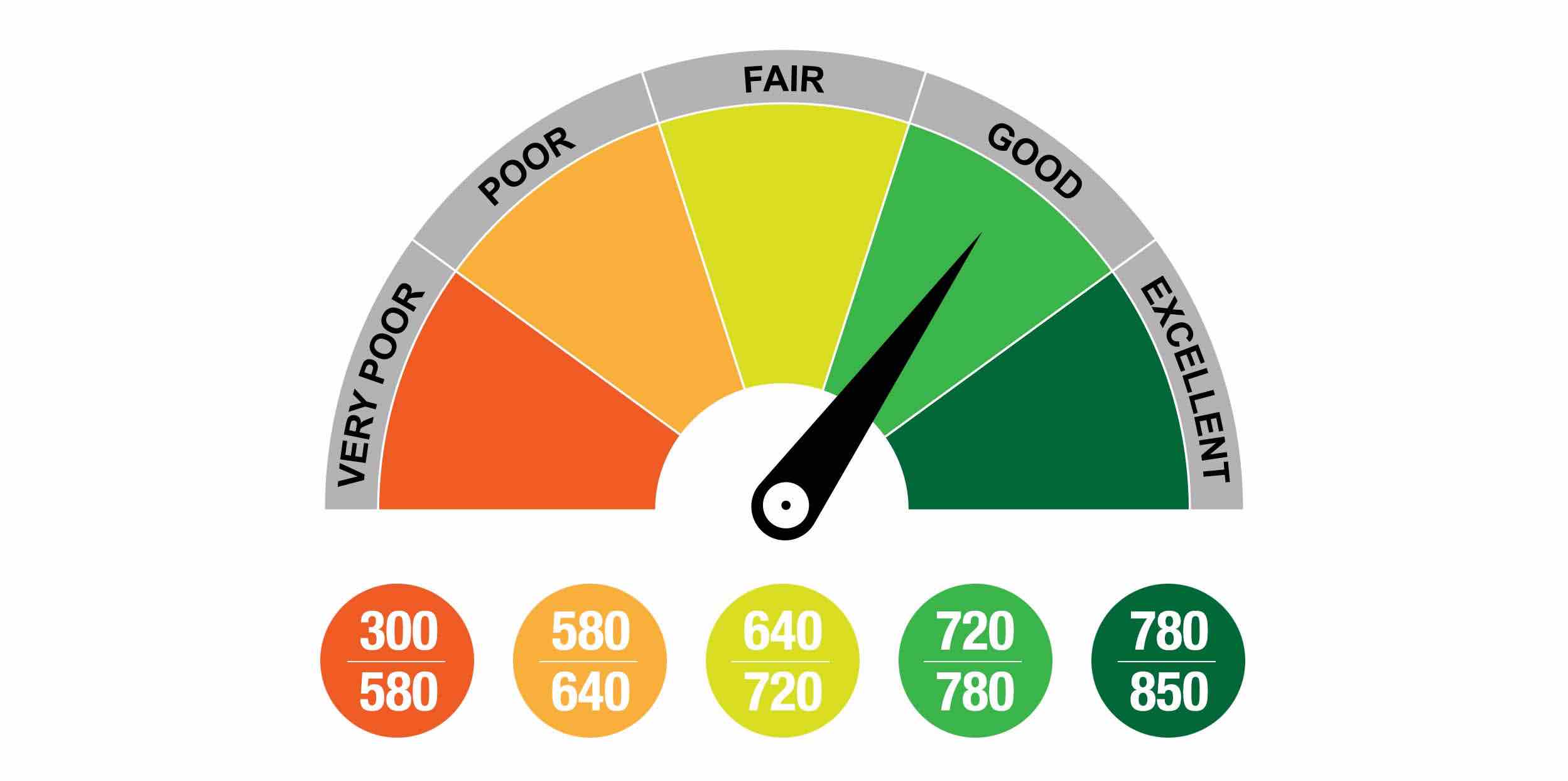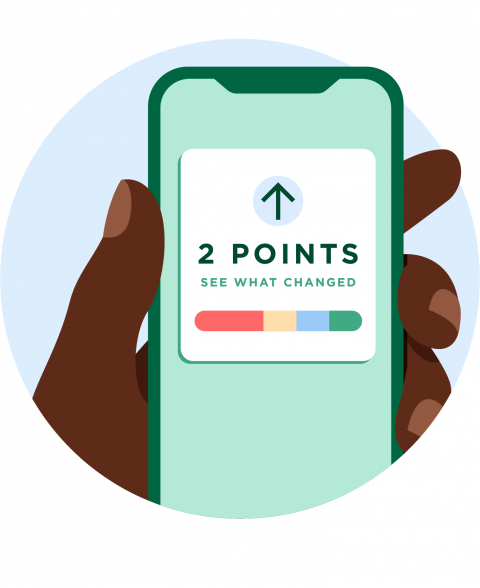
What’s a good credit score with FICO vs. VantageScore
The most popular credit scoring system, FICO, and its rival, VantageScore, both utilize the 300–850 range. But the two systems classify high credit scores somewhat differently from one another.
What is a good FICO score?
Scores between 580 and 669 are deemed “fair” by FICO, while scores between 740 and 799 are deemed “very good.” ” Anything at 800 or above is considered “exceptional. The above image shows the credit score bands from NerdWallet, which are used as a general guide.
FICO comes from Fair Isaac Corp. , the company that first developed a credit scoring system. It makes use of consumer information from TransUnion, Equifax, and Experian, the three main credit reporting bureaus.
What is a good VantageScore?
661 to 780 is a good VantageScore, and the company refers to this range as a “prime” credit tier. The average VantageScore 3. 0 as of October 2023 was 700.
VantageScores 601 to 660 are categorized as “near prime,” and scores 781 to 850 as “superprime.” ” VantageScores 600 and below are considered “subprime. ” These ranges are for VantageScore 3. 0.
Using the same credit report information from the three bureaus, VantageScore generates a score that is comparable to that of rival FICO.
Using VantageScore and your TransUnion credit report, NerdWallet provides you with a free credit score.

What a good credit score can get you
It is important to have good credit because it affects your ability to borrow money and how much interest you will pay. Regardless of whether you intend to apply for credit or not, having a high credit score is beneficial.
A high credit score can assist you in obtaining the following:
- A balance-transfer credit card or an unsecured credit card with a respectable interest rate
- A desirable car loan or lease. When looking for a car, be ready to answer questions regarding negative items on your credit record if your score is 700 or lower. Major credit blemishes are frequently accepted for auto loans, but you might not be eligible for a low rate.
- A mortgage with a favorable interest rate. You don’t need flawless credit to get a mortgage. In some cases, credit scores can be in the 500s. However, because credit scores gauge the likelihood that you won’t make your scheduled payments, lenders reward higher scores by offering lower interest rates.
- An upper hand in the rental application process. Landlords or property managers generally arent looking for immaculate scores. They are interested in your credit record. Find out more about the criteria that landlords use when doing credit checks.
- The ability to open new credit. This adaptability can give you access to travel cards and speciality rewards, as well as assist you in paying bills during an emergency. Whatever the reason, one genuine advantage of having a high score is being able to open a new line of credit when necessary.
A good credit score helps in other ways, too. Those with better credit scores often pay less for auto insurance in several states. In addition, some landlords use credit scores to screen tenants.
What affects your credit score?
Two factors have the greatest impact on your credit score: payment history, or whether you make your payments on time, and credit utilization, or how much of your available credit you are using.
The length of time you’ve had credit, whether you have a variety of credit kinds, and the frequency and recentness of your credit applications are other important but somewhat less significant factors.
How to get a good credit score
Good credit habits, practiced consistently, will build your score. Here’s what you need to do:
Pay bills on time
Of all the elements affecting your score, payment history has the biggest influence. A late or missed payment can have a significant negative impact on your credit score and can remain on your credit report for up to seven years.
Keep credit utilization below 30%
It’s a wise financial practice to keep your credit card balances significantly below your credit limits. It is better to aim for a credit utilization percentage below 30%, but even lower is acceptable. A high utilization rate lowers your credit score; however, this negative impact will subside as soon as you are able to lower your balances and your credit reports reflect the reduced utilization. By obtaining a higher credit limit or adding yourself as an authorized user to a sparingly used card with a high limit, you might also be able to reduce utilization.
Keep credit accounts open
Maintaining the openness of older accounts benefits your average age of accounts, which has a negligible effect on your score. Your credit utilization will increase when you close an account because it reduces your total credit limit. Nonetheless, there are a few strong arguments for canceling an account, such as excessive fees or subpar support.
Space out credit applications
Avoid making several credit applications in a short time frame. Your score may temporarily decline as a result of one or more credit checks conducted for credit decisions, and these inquiries over time may result in a larger decline. For this reason, before applying for a credit card, do some research.
Monitor your credit reports
Keep an eye on your credit reports and challenge any information that you feel is inaccurate or should not be there (the majority of negative information disappears after seven years).
Check your free credit score to see what drives your credit and receive individualized insights. Weekly updates let you track your progress. Sign up, its free.
What is the perfect credit score, and how many people have it?
On the most commonly used scales, 850 is the maximum score that is possible. According to data from FICO, about 1. 7% of all FICO scores were at the coveted 0.850 percentile as of April 2020. Furthermore, because credit scores fluctuate, it’s unlikely that you’ll maintain your position month after month even if you do succeed. The average credit scores by age provided by FICO and VantageScores show where most people’s scores really fall.
FAQ
What is a good credit score by age?
Generation Z (ages 18–26) 679 – Good680 – GoodMillennials (27–42) 687 – Good690 – GoodGeneration X (43-58)707 – Good709 – Good Average FICO 8 Score by GenerationGeneration20222023
What is good FICO score?
|
FICO Credit Score Ranges
|
|
|
Excellent/Exceptional
|
800-850
|
|
Very good
|
740-799
|
|
Good
|
670-739
|
|
Fair
|
580-669
|
Is a 700 credit score decent?
In the credit score range of 300 to 850, a score of 700 or higher is typically regarded as good. On the same range, a score of 800 or higher is regarded as exceptional. The majority of consumers have credit scores that range from 600 to 750. In 2022, the average FICO® Score☉ in the U. S. reached 714.
Read More :
https://www.experian.com/blogs/ask-experian/credit-education/score-basics/what-is-a-good-credit-score/
https://www.nerdwallet.com/article/finance/what-is-a-good-credit-score